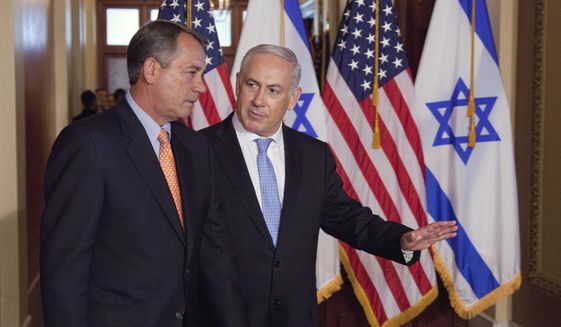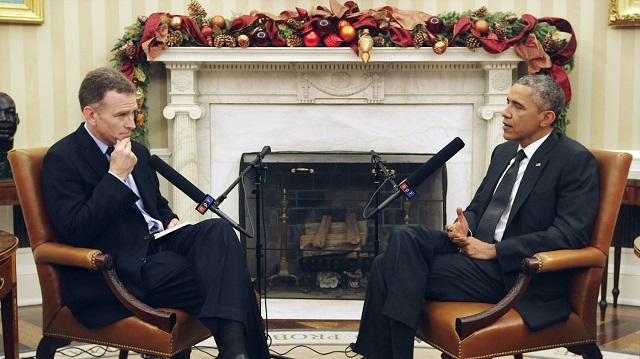‘This Never Happened’: Sources Close To Trump Rally To His Defense Over Atlantic Story

🇺🇸 🇺🇸 🇺🇸https://t.co/vqQToP51Ld
— GOP (@GOP) September 7, 2020
President Donald Trump was quick to deny a recent report from The Atlantic, which alleged that he had said a number of disrespectful things about fallen American service members — and in the days that followed, a number of others have gone on record to support him.
Trump claimed that the story had been invented to help The Atlantic “gain some relevance.”
The Atlantic Magazine is dying, like most magazines, so they make up a fake story in order to gain some relevance. Story already refuted, but this is what we are up against. Just like the Fake Dossier. You fight and and fight, and then people realize it was a total fraud!
— Donald J. Trump (@realDonaldTrump) September 4, 2020
First Lady Melania Trump made a rare public statement as well, saying that the story was “not true” and adding, “It has become a very dangerous time when anonymous sources are believed above all else, & no one knows their motivation. This is not journalism – It is activism. And it is a disservice to the people of our great nation.”
.@TheAtlantic story is not true. It has become a very dangerous time when anonymous sources are believed above all else, & no one knows their motivation. This is not journalism – It is activism. And it is a disservice to the people of our great nation.
— Melania Trump (@FLOTUS) September 4, 2020
Former White House press secretary Sarah Sanders noted that she was there at the time Trump was supposed to have made the reported comments — and she said simply, “This never happened.”
Former Press Secretary Sarah Huckabee Sanders: “I was actually there and one of the people part of the discussion — this never happened.”https://t.co/h0eZ9AEFoQ
— Philip Melanchthon Wegmann (@PhilipWegmann) September 4, 2020
Dan Scavino also said that he was with President Trump in France and called the report “complete lies.”
I was with POTUS in France, with Sarah, and have been at his side throughout it all. Complete lies by “anonymous sources” that were “dropped” just as he begins to campaign (and surge). A disgraceful attempt to smear POTUS, 60 days before the Presidential Election! Disgusting!! https://t.co/mQfCNUlyZm
— Dan Scavino🇺🇸🦅 (@DanScavino) September 4, 2020
General Keith Kellogg, national security adviser to Vice President Mike Pence, also defended the president, saying, “The Atlantic story is completely false. Absolutely lacks merit. I’ve been by the President’s side. He has always shown the highest respect to our active duty troops and veterans with utmost respect paid to those who have given the ultimate sacrifice and those wounded in battle.”
The Atlantic story is completely false. Absolutely lacks merit. I’ve been by the President’s side. He has always shown the highest respect to our active duty troops and veterans with utmost respect paid to those who have given the ultimate sacrifice and those wounded in battle.
— Keith Kellogg (@generalkellogg) September 3, 2020
Veterans Affairs Secretary Robert Wilkie joined CNN’s Dana Bash and offered his own defense of the president Sunday, saying that he had not heard Trump disparage American service members and adding, “I would be offended too if I thought it was true. Again, I think ‘anonymous’ are the same people that brought you fake heart attacks, fake strokes, Russian collusion.”
WATCH:
Former National Security Adviser John Bolton — who left the White House and the president’s favor in very public fashion — said in his book that weather and security were the primary factors that ultimately canceled Trump’s visit to Belleau Woods in France.
Bolton, no fan of Trump’s, on the decision for Trump to skip Belleau Woods pic.twitter.com/OG4hGFwIfQ
— Meridith McGraw (@meridithmcgraw) September 4, 2020
Bolton also told Fox News White House correspondent John Roberts that if the canceled trip had been the result of a presidential temper tantrum, he would have given it a full chapter in his book.
.@AmbJohnBolton told me today that if @realDonaldTrump had said he didn’t want to visit Aisne-Marne because the interred heroes were “losers” and “suckers”, he would have written an entire chapter about it in his book #TheRoomWhereItHappened
— John Roberts (@johnrobertsFox) September 4, 2020
The Federalist’s Ben Domenech acknowledged the many hurtful things President Trump had said about his late father-in-law — Republican Arizona Sen. John McCain — but also noted that The Atlantic had not exactly “clothed itself in glory” with regard to journalistic integrity.
WATCH:
Domenech tweeted a similar sentiment when the story broke, saying, “I’m confident I have better sources within this White House than @JeffreyGoldberg, and I expect that upon investigation his anonymously sourced story will live up to the quality we can expect from The Atlantic under his leadership.”
I'm confident I have better sources within this White House than @JeffreyGoldberg, and I expect that upon investigation his anonymously sourced story will live up to the quality we can expect from The Atlantic under his leadership.
— Ben Domenech (@bdomenech) September 4, 2020
White House press secretary Kayleigh McEnany called the story “garbage,” adding, “the liberal activists at The Atlantic are uninterested in the truth and they are only interested in peddling conspiracy laden propaganda.”
I see President @realDonaldTrump consistently express his heartfelt gratitude and absolute admiration for our brave men and women in uniform.
Just yesterday, he was truly humbled to be in the presence of our courageous World War II veterans.
This Atlantic story is garbage!
— Kayleigh McEnany (@PressSec) September 4, 2020
.@PressSec: "Why would a publication abandon all journalistic integrity and publish this story? It's because the liberal activists at The Atlantic are uninterested in the truth and they are only interested in peddling conspiracy laden propaganda." pic.twitter.com/PiKApNXX11
— CSPAN (@cspan) September 4, 2020
And they were not alone.
Steven Miller: "“The President deeply wanted to attend the memorial event in question and was deeply displeased by the bad weather call. The next day, he spoke at Suresnes American Cemetery in the pouring rain and refused an umbrella.”https://t.co/koa1sSge5f
— Philip Melanchthon Wegmann (@PhilipWegmann) September 4, 2020
Not a soul brave enough to put their name on any of these accusations. That's because they are false. Just another anonymously sourced story meant to tear down a Commander-in-Chief who loves our military and has delivered on the promises he's made. What a disgrace! https://t.co/NInGxeDcI2
— Judd Deere (@JuddPDeere45) September 3, 2020
On that Atlantic piece: It’s offensive & patently false. @realDonaldTrump holds the military in the highest regard. He’s demonstrated his commitment to the force: delivering a pay raise to our troops, increasing military $$, signing vets reform & supporting military spouses.
— Alyssa Farah (@Alyssafarah) September 3, 2020
Fox News reporter Jennifer Griffin said that she was able to corroborate some details of The Atlantic’s story — but her sources were kept anonymous as well.
NEW, @JenGriffinFNC confirms former Trump admin official confirms details in The Atlantic story, including quotes about veterans. When the President spoke about the Vietnam War he said, “It was a stupid war. Anyone who went was a sucker.”
— Jacqui Heinrich (@JacquiHeinrich) September 4, 2020
COLUMN BY
VIRGINIA KRUTA
Associate Editor.
RELATED ARTICLES:
Trump Denies Report That He Called Fallen American Soldiers ‘Losers,’ Calls The Story A ‘Fraud’
Trust In The CDC And Media To Deliver Accurate Information About COVID Tumbles, Poll Shows
EDITORS NOTE: This Daily Caller column is republished with permission. ©All rights reserved.


 Hat tip to Imre Herzog. You may have read the tweet exchanges by Jeffrey Goldberg of The Atlantic with leftist anti-Zionist columnists at Ha’aretz who call Israel, ‘evil’. Goldberg took both them and the publisher Amos Schocken to task for their bizarre commentaries. Ruthie Blum
Hat tip to Imre Herzog. You may have read the tweet exchanges by Jeffrey Goldberg of The Atlantic with leftist anti-Zionist columnists at Ha’aretz who call Israel, ‘evil’. Goldberg took both them and the publisher Amos Schocken to task for their bizarre commentaries. Ruthie Blum 



